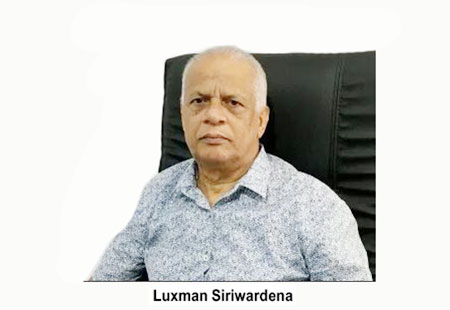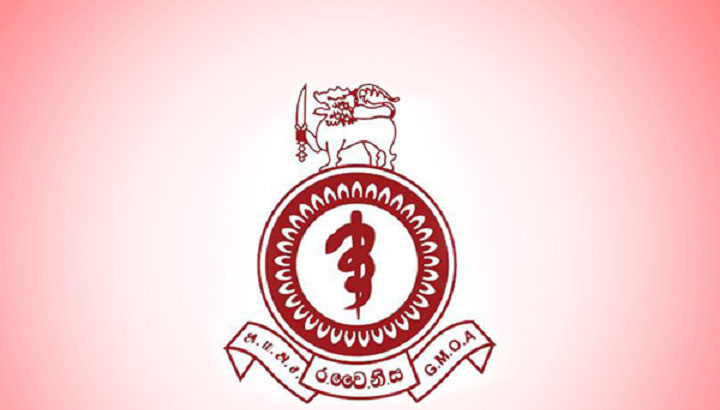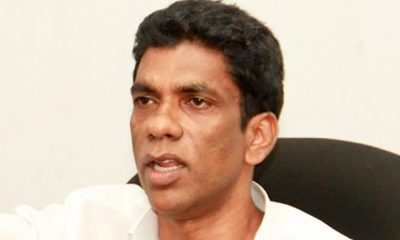News
BRI a functional machinery in global economic recovery: Sri Lankan expert

The continuation of protectionism by America, the largest economy body in the world, will only result in further contraction of the world economy and aggravation of unemployment, poverty and deprivation, said Luxman Siriwardena, president of the Sri Lanka-based Pathfinder Foundation told People’s Daily Online during a recent meeting.
Siriwardena added that the unilateralism and protectionism currently being championed by the American administration goes against the values the West has promoted since the end of World War II.
“When I was undertaking graduate studies at an American university in the 1980s, it would have been totally unacceptable for any of the economic professors to believe that the protectionism in trade and investment would enhance the welfare of the international community,” he said, sharing that since the establishment of formal China-Sri Lankan diplomatic relations, China has been a reliable, all-weather friend of Sri Lanka.
In recent years, Sri Lanka has taken an active role in the Belt and Road Initiative (BRI), which, he stressed, is the most logical development strategy for Sri Lanka.
The successful completion of the three major development projects in Sri Lanka under the BRI, namely Colombo Port City Project, Hambantota International Port and proposed Hambantota Industrial Zone, will have a transformative impact on the Sri Lankan economy.
In the post-pandemic era, the BRI is “a functional machinery which can substantially contribute to the recovery of the global economy,” he noted, voicing hope that the initiative will have more inclusive and comprehensive programs encompassing a larger amount of countries.
While this is a decisive year for China to complete the building of a moderately prosperous society in all respects and to end extreme poverty, according to Siriwardena, China’s development has been “unprecedented” in the history of the entire world.
“The process has been inclusive in the sense that China has uplifted hundreds of millions of people out of poverty while achieving advancement in science, technology and culture,” he said, adding that China has addressed the social, economic and environmental dimensions of the 2030 Agenda for Sustainable Development in the recent past, citing the pollution management in the city of Beijing as an example.
Looking ahead, Siriwardena said the two countries will enhance their cooperation in various fields, such as COVID-19 pandemic control and prevention, investment in manufacturing, logistics and services, infrastructure as well as economic digitalization, and people-to-people exchanges.
Faced with the COVID-19 pandemic, Siriwardena pointed out that both China and Sri Lanka have managed to control the virus with relatively minimal loss of life, and praised China’s commitment to distribute the vaccine to the rest of the world, which will contribute to the vision of building a community of health for all in the near future.
News
GMOA warns of trade union action unless govt. urgently resolves critical issues in health sector

Influx of substandard drugs is of particular concern
The Government Medical Officers’ Association (GMOA) has warned of renewed and intensified trade union action if the government fails to fulfil its promise to resolve the ongoing crisis in the health sector within the next few days.
GMOA Executive Committee member Dr. Prasad Colombage said his association was hopeful that commitments made by the government, including those formally stated by the Minister of Health in Parliament and recorded in the Hansard, would be implemented.
He called for urgent remedial action in view of the influx of substandard medicines into the country, patient deaths linked to such drugs, difficulties faced by doctors in prescribing medicines, and disruptions to patient care services caused by the continued migration of medical professionals. These factors, he warned, had placed patients’ lives at serious risk.
Dr. Colombage said discussions had already been held with all relevant authorities, including the President and the Minister of Health. He expressed hope that swift solutions would be forthcoming based on agreements reached at discussions. However, he cautioned that the GMOA would not hesitate to resort to strong trade union action if tangible progress was not seen in the coming days.
Meanwhile, the Federation of Medical and Civil Rights Professional Associations yesterday (01) handed over a special memorandum to President Anura Kumara Dissanayake, calling for immediate action to resolve the deepening crisis in the health sector.
Federation President, Consultant Dr. Chamal Sanjeewa, said Sri Lanka’s health system was currently facing a severe crisis and had sought an opportunity to hold discussions with the President on the matter.
The memorandum calls for the President’s direct and immediate intervention on several key issues, including the Indo–Sri Lanka health agreement, shortages of essential medicines including cancer drugs, continued allegations surrounding the administration of the Ministry of Health, reported irregularities at the National Hospital, Colombo, and the absence of an internationally accredited quality control laboratory for the National Medicines Regulatory Authority to test medicines. The Federation has also requested a meeting with the President to discuss these concerns in detail.
By Sujeewa Thathsara ✍️
News
Elephant census urged as death toll nears 400

Sri Lanka’s latest elephant census must result in immediate policy action, not remain a paper exercise, Centre for Environmental Justice (CEJ) Managing Director Dilena Pathragoda warned, as nearly 400 wild elephants have already died in 2025 alone amid escalating human–elephant conflict.
With the national elephant population estimated at around 5,879, Pathragoda said the figures would be meaningless unless they shape land-use planning, habitat protection and enforcement.
“As of mid-December, close to 397 elephants have died in 2025, mostly due to shootings, electrocution, train collisions and other human-related causes,” he told The Island. “When deaths continue at this scale, census numbers alone offer little reassurance.”
Official data show that 388 elephants died in 2024, while 2023 recorded a staggering 488 deaths, one of the highest annual tolls on record. Conservationists warn that the trend reflects systemic failure to secure habitats and elephant corridors, despite repeated warnings.
“An elephant census should not end with a headline figure,” Pathragoda said. “If these statistics do not influence development approvals, infrastructure planning and land-use decisions, they fail both elephants and rural communities.”
Elephant populations remain unevenly distributed, with higher densities in the Mahaweli, Eastern and North Western regions, while other areas face sharp declines driven by habitat fragmentation and unplanned development.
Pathragoda said recurring fatalities from gunshots, illegal electric fences, improvised explosive devices along with poisonings and rail collisions expose the limits of short-term mitigation measures, including ad hoc fencing projects.
“The crisis is not a lack of data, but a lack of political will,” he said, calling for binding conservation policy, transparent environmental assessments and accountability at the highest level.
He urged authorities to treat elephant conservation as a national governance issue, warning that failure to act would only see future censuses record further decline of these majestic animals.
“Elephants are part of Sri Lanka’s natural heritage and economy,” Pathragoda said. “Ignoring these warning signs will come at an irreversible cost.”
By Ifham Nizam ✍️
News
CTU raises questions about education reforms

The Ministry of Education has yet to clarify whether school hours will be extended by 30 minutes from next Monday (05) under the proposed new education reforms, Ceylon Teachers’ Union (CTU) General Secretary Joseph Stalin has said.
Stalin told The Island that the Ministry should reconsider the planned reforms, warning that decisions taken without adequate study and consultation could have serious repercussions for nearly four million schoolchildren.
He said the Education Ministry had announced that education reforms would be implemented in Grades from 1 to Grade 6, but it had not said anything about the Grades above 6. This lack of clarity, he said, had created confusion among teachers, parents and students.
Stalin also noted that although learning modules had been issued, students are required to obtain photocopies based on the codes introduced in these modules. However, the Ministry had not revealed who would bear the additional financial burden arising from those costs, raising further concerns over the practical implementation of the reforms.
by Chaminda Silva ✍️
-

 Sports4 days ago
Sports4 days agoGurusinha’s Boxing Day hundred celebrated in Melbourne
-

 News2 days ago
News2 days agoLeading the Nation’s Connectivity Recovery Amid Unprecedented Challenges
-

 Sports5 days ago
Sports5 days agoTime to close the Dickwella chapter
-

 Features3 days ago
Features3 days agoIt’s all over for Maxi Rozairo
-

 News5 days ago
News5 days agoEnvironmentalists warn Sri Lanka’s ecological safeguards are failing
-

 News3 days ago
News3 days agoDr. Bellana: “I was removed as NHSL Deputy Director for exposing Rs. 900 mn fraud”
-

 News2 days ago
News2 days agoDons on warpath over alleged undue interference in university governance
-

 Features5 days ago
Features5 days agoDigambaram draws a broad brush canvas of SL’s existing political situation













